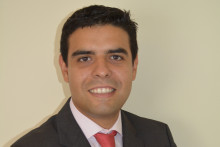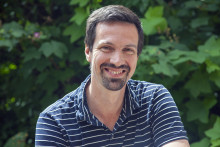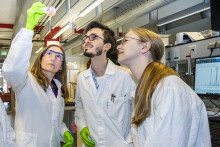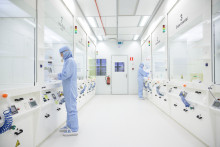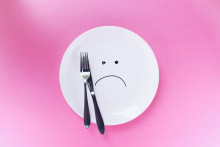- EN
- NL
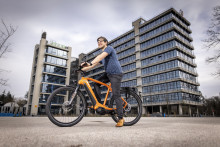 Science
ScienceDe fiets onder de loep
Dat hij ook buiten de deur kan werken, is voor Mario Boot een van de belangrijkste redenen om dit promotieonderzoek naar de impact van nieuwe fietstechnologieën te doen. En als zelfverklaard fietsliefhebber wil Boot graag zijn eigen proefpersoon zijn. ‘Fietsen doe je uiteraard buiten en dus gaan wij, als onderzoekers, ook naar buiten om een beter inzicht in de praktijk te krijgen.’
- EN
- NL
 Science
ScienceRide along
Being able to work ‘out of office’ was one of the main reasons why Mario Boot decided to start his PhD research, which focuses on measuring the impact of new bike technologies on user experience. And as a self-proclaimed cycling lover, Boot is more than happy to be his own test subject. ‘My research revolves around bicycles. Cycling naturally happens outside, and so we, researchers, also spend time outside to get a better insight into the real-life environment.’
- EN
- NL
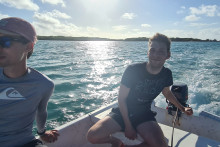 Science
ScienceHoe belangrijk is het mangrovebos voor kustbescherming?
In tropische regio’s kunnen mangrovebossen bescherming bieden tegen overstromingen, en dat is mede door de klimaatverandering geen overbodige luxe. Op Bonaire probeert UT-promovendus Rik Gijsman van de vakgroep Marine and Fluvial Systems te berekenen wat de beschermende waarde van zo’n bos precies is, maar dit blijkt geen gemakkelijke opgave.
- EN
- NL
 News
NewsHow important is the mangrove forest for coastal protection?
In tropical regions, mangrove forests can offer protection against flooding. Partly because of climate change, this is not just a luxury. UT PhD candidate Rik Gijsman of the Marine and Fluvial Systems department is trying to calculate the exact protective value of such a forest on Bonaire, but that is easier said than done.



